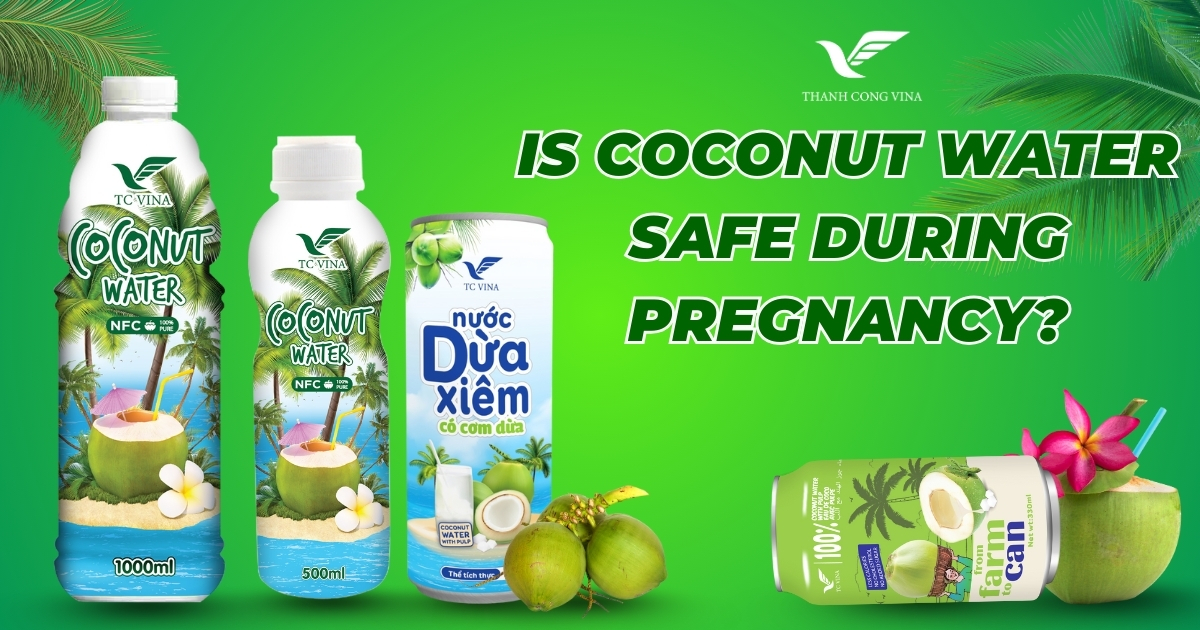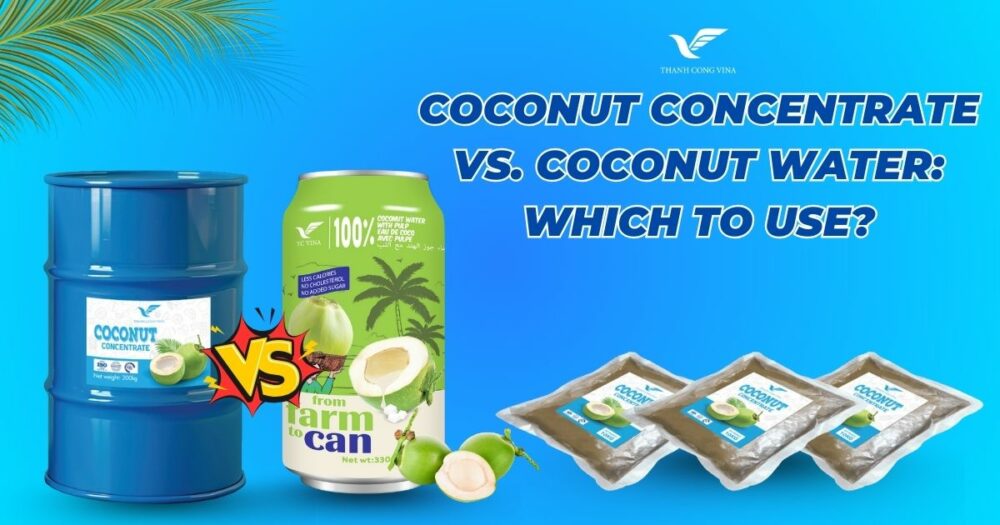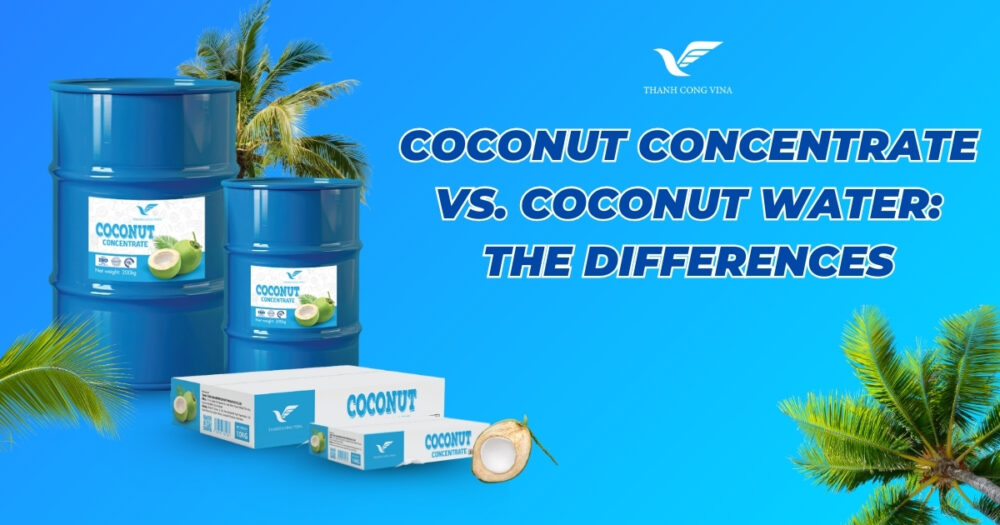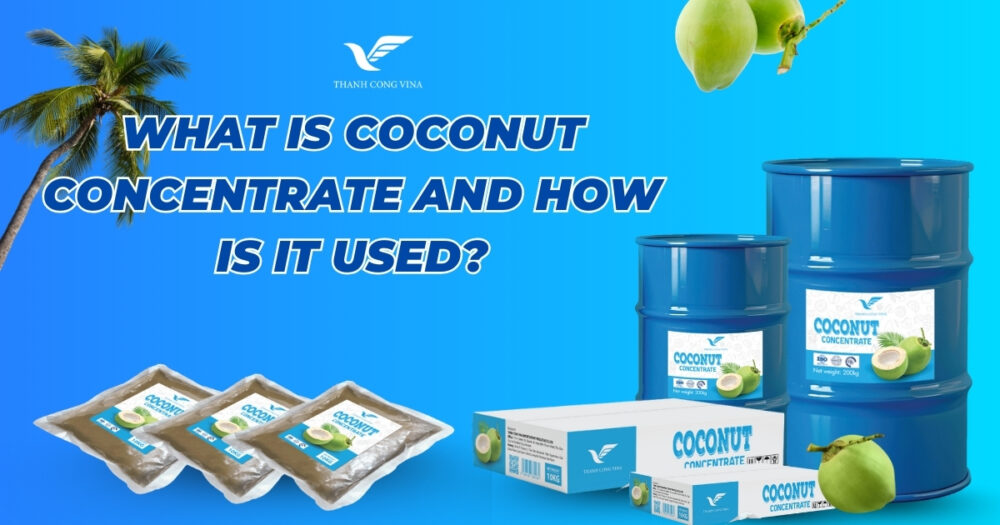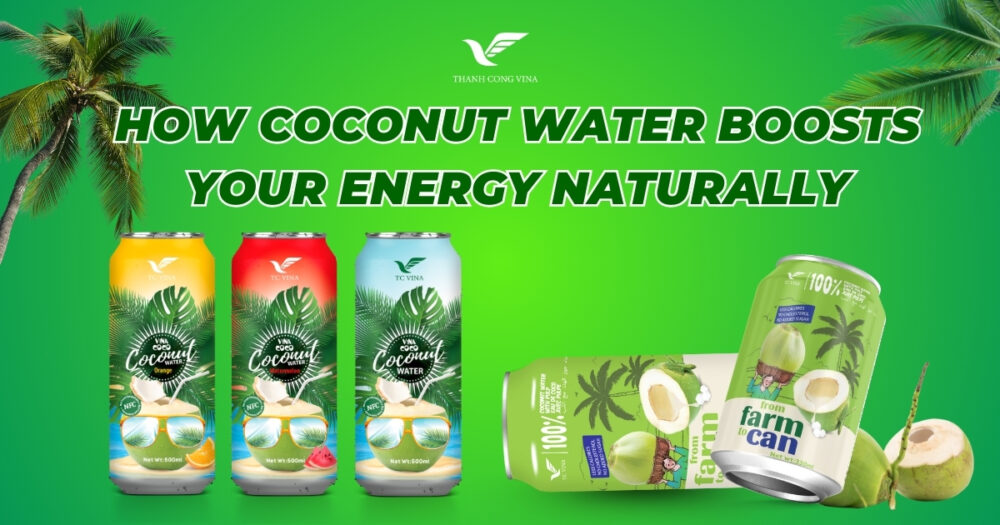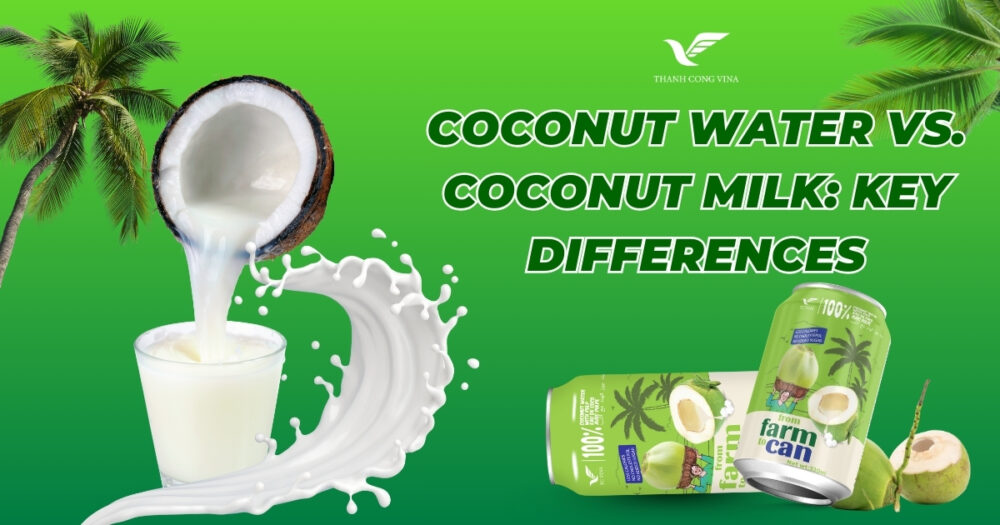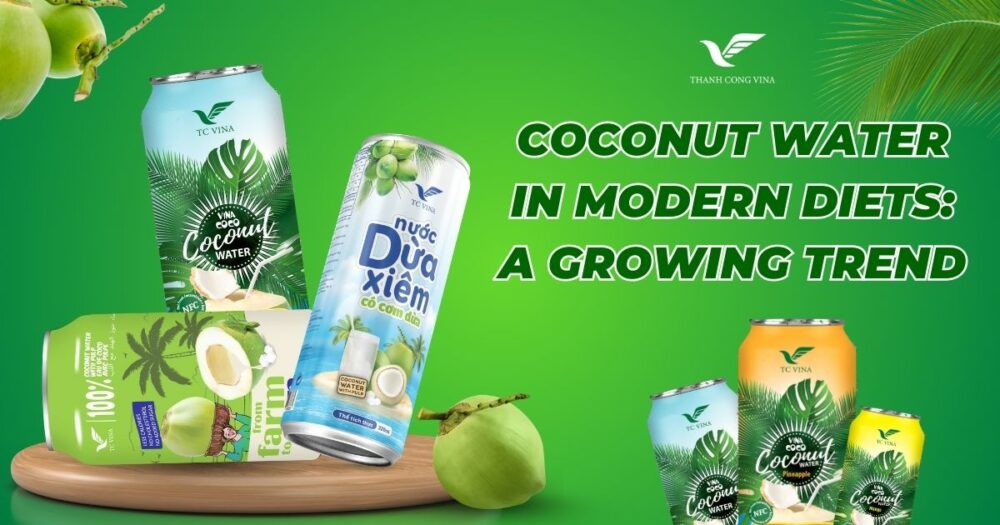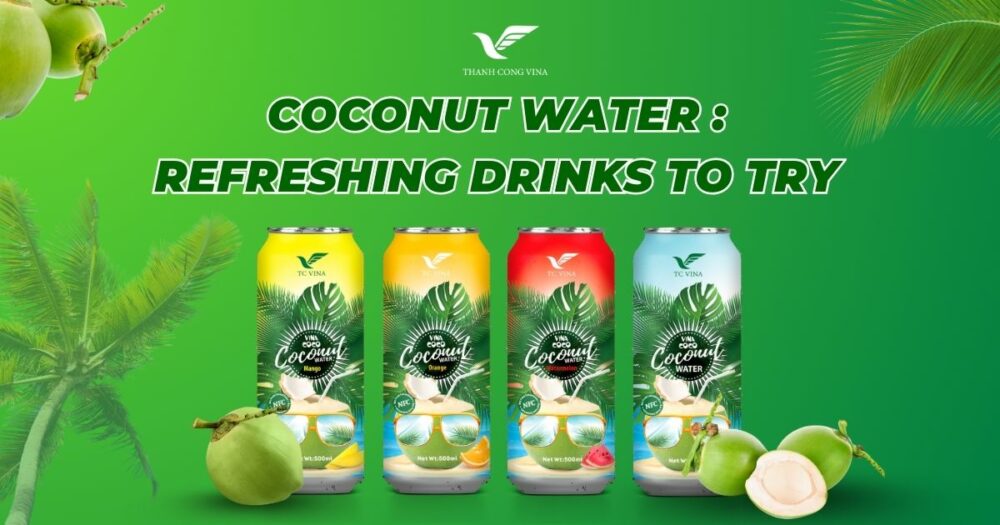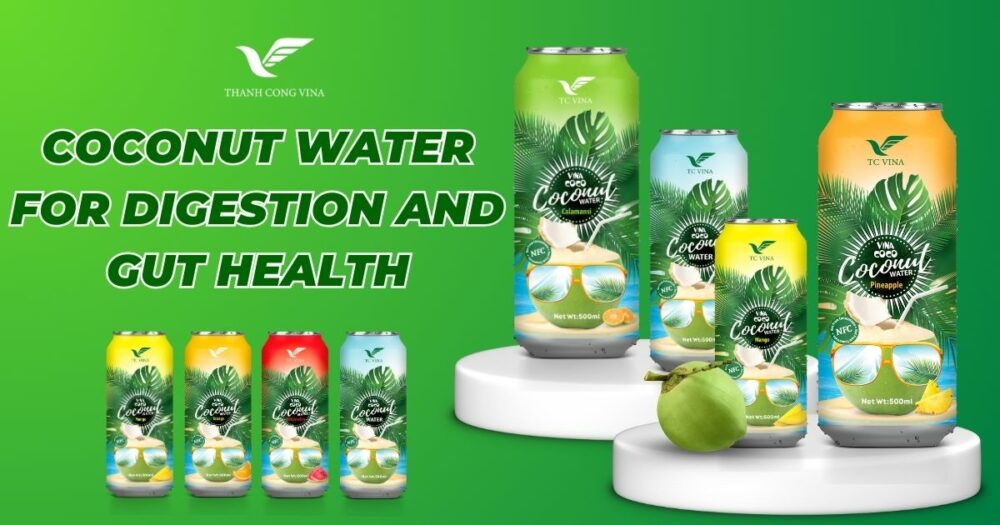Pregnancy is one of the most transformative stages in a woman’s life. Expecting mothers are often more mindful of what they eat and drink, as every choice directly affects both their health and the baby’s development. Among the many natural beverages, coconut water has gained popularity as a refreshing and nutrient-rich drink. Known for its hydrating properties, vitamins, and minerals, coconut water is often promoted as a healthy alternative to sugary drinks or artificial juices. But a key question arises: Is coconut water safe during pregnancy?
At Thanh Cong Vina, In this comprehensive guide, we will explore the nutritional value of coconut water, its potential benefits for pregnant women, safety considerations, and tips for making the most out of this natural drink.
What Is Coconut Water?
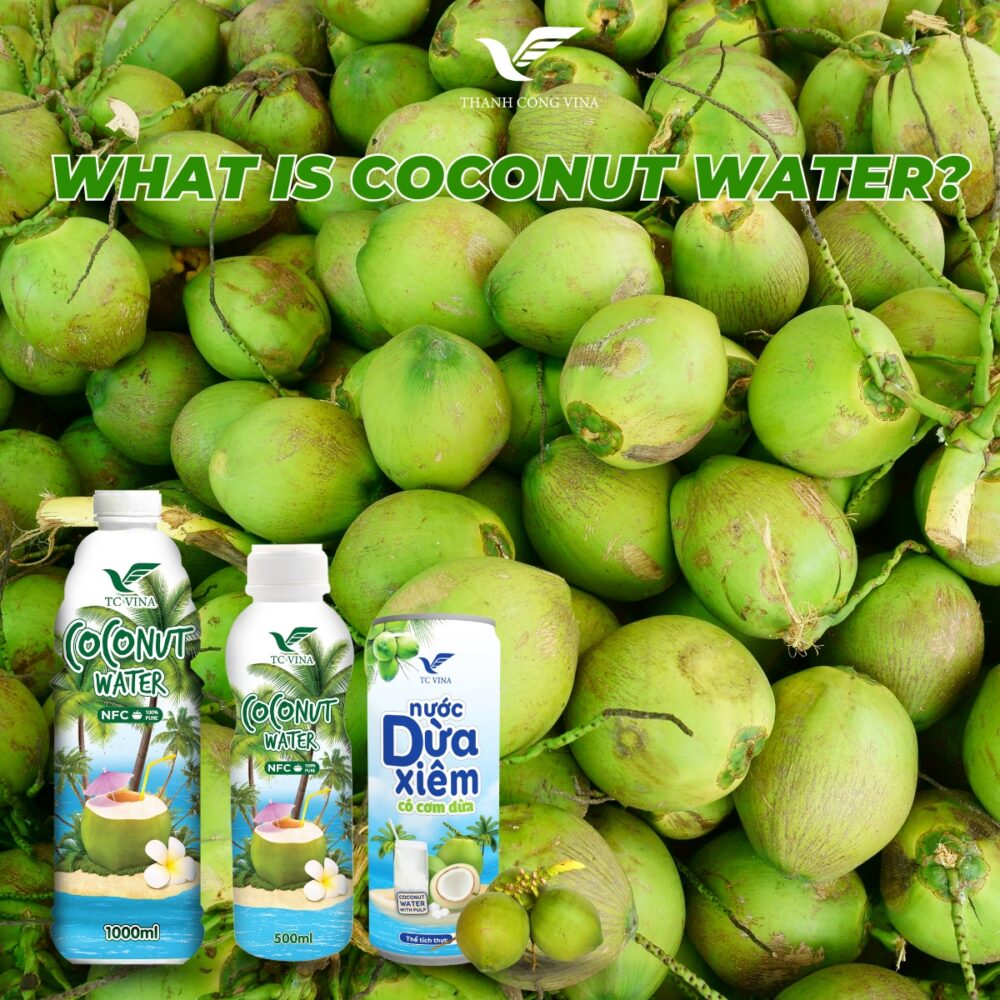
What Is Coconut Water?
Coconut water is the clear liquid found inside young green coconuts. Unlike coconut milk, which is made by blending the white flesh of mature coconuts with water, coconut water is naturally present in the fruit. It is low in calories, fat-free, and contains essential nutrients such as potassium, calcium, magnesium, and vitamin C.
Throughout tropical regions, coconut water has been consumed for centuries as a natural hydrator. In recent years, its reputation has expanded globally, being marketed as a “super drink” that supports hydration, digestion, and overall wellness. For pregnant women, this nutrient-rich beverage has become an appealing choice to replace processed or sugary drinks.
Benefits of Coconut Water During Pregnancy
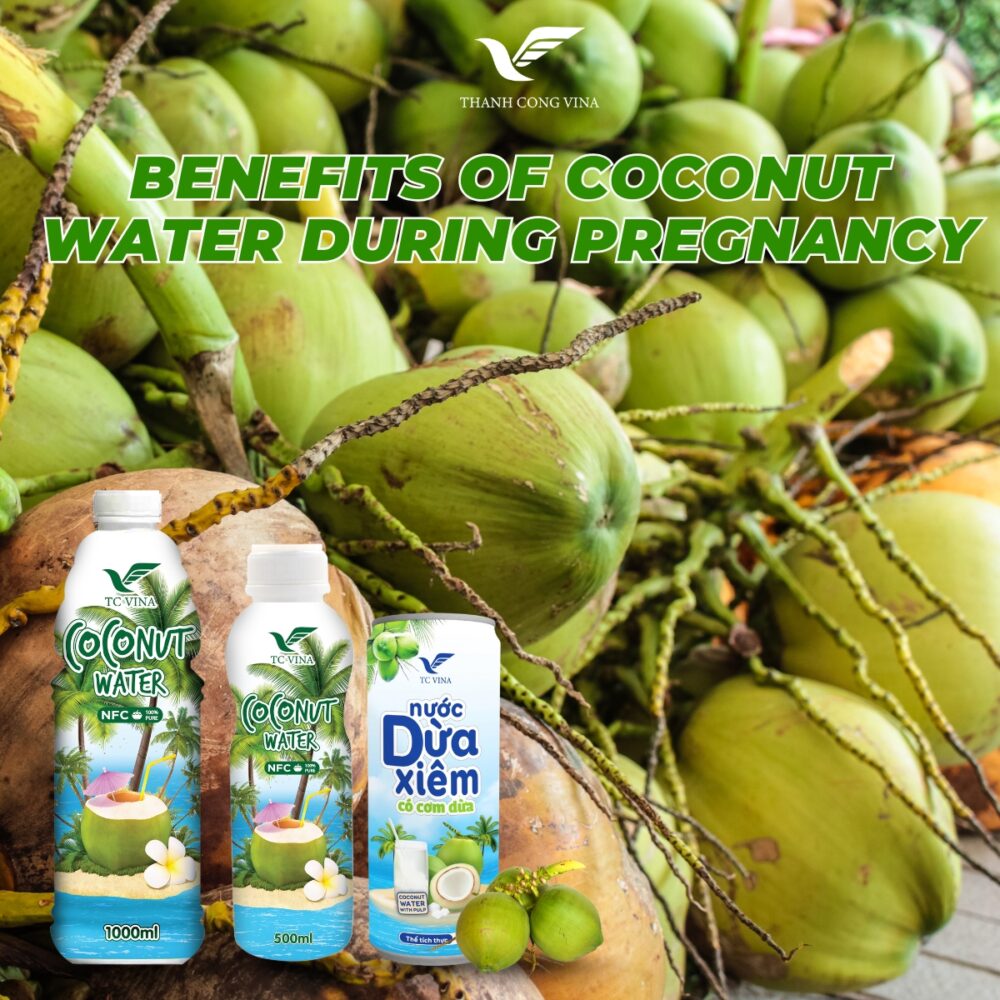
Benefits of Coconut Water During Pregnancy
Many mothers-to-be are drawn to coconut water because it is natural, refreshing, and packed with nutrients. Below are the top benefits it may offer during pregnancy.
1. Hydration Support
Pregnant women often require more fluids due to increased blood volume, amniotic fluid, and metabolic needs. Coconut water is about 95% water, making it a natural hydrating beverage. Its electrolyte content helps replenish minerals lost through sweating, morning sickness, or frequent urination.
2. Relief from Morning Sickness
Nausea and vomiting are common during the first trimester. Coconut water’s mild sweetness and electrolyte content may help settle the stomach while providing hydration, which is critical when dealing with morning sickness.
3. Natural Source of Electrolytes
Electrolytes like potassium, magnesium, and sodium support nerve function, muscle activity, and pH balance. They are especially important during pregnancy to prevent dehydration, maintain healthy blood pressure, and reduce muscle cramps.
4. Supports Digestion
Coconut water contains fiber and bioactive enzymes that can support healthy digestion. Many pregnant women experience constipation or heartburn, and the gentle laxative effect of coconut water may provide natural relief.
5. Helps Manage Blood Pressure
High blood pressure is a common concern during pregnancy. Potassium in coconut water may help regulate blood pressure by balancing sodium levels and improving circulation.
6. Natural Immunity Booster
Coconut water contains antioxidants and vitamin C, which may strengthen the immune system. A stronger immune response helps protect both mother and baby from common infections during pregnancy.
7. Reduces Fatigue and Boosts Energy
Coconut water is a natural energy drink without caffeine or artificial ingredients. Its combination of electrolytes and natural sugars offers an instant energy boost, which can help fight pregnancy-related fatigue.
8. May Reduce Urinary Tract Infections (UTIs)
Frequent urination during pregnancy increases the risk of UTIs. Coconut water acts as a natural diuretic, promoting urine flow and helping flush toxins from the body, potentially lowering the risk of infection.
Is Coconut Water Completely Safe During Pregnancy?
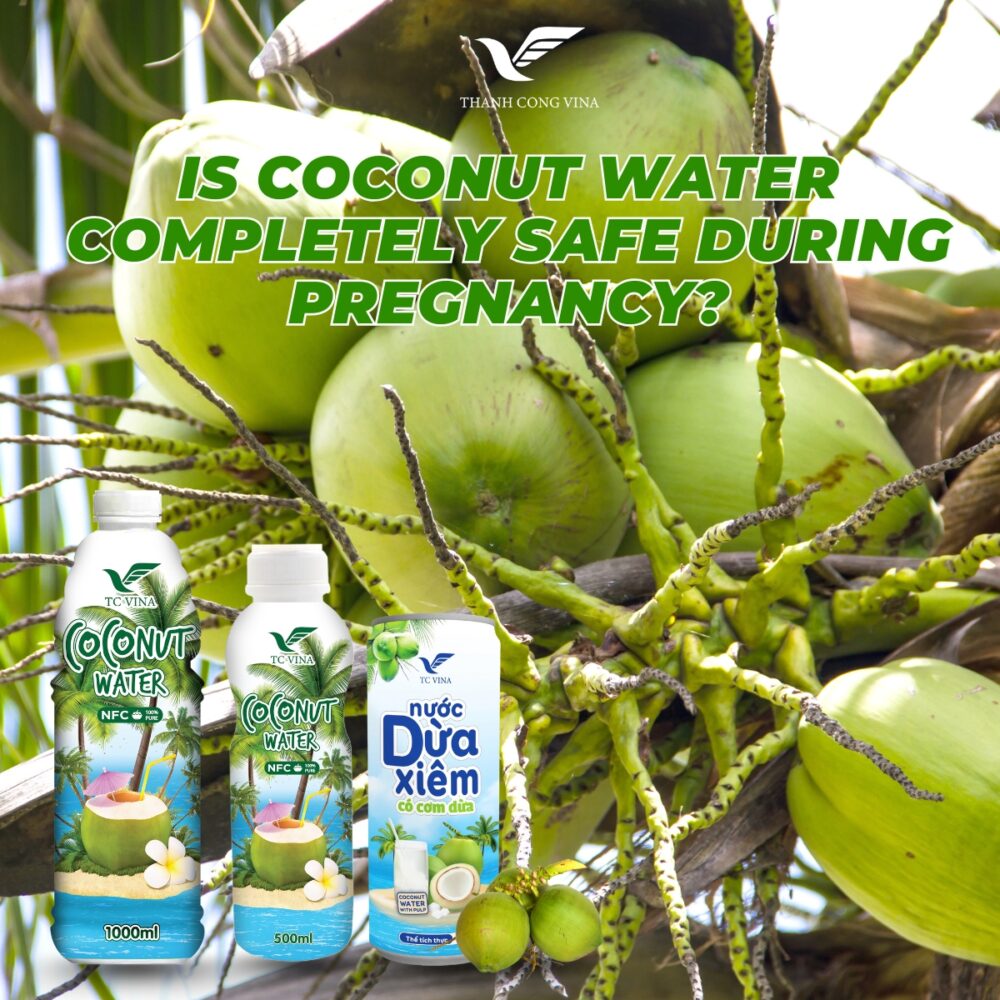
Is Coconut Water Completely Safe During Pregnancy?
While coconut water is generally considered safe, moderation is key. Some women may benefit greatly, but others may need to be cautious. Let’s explore both the advantages and potential risks.
Safety Considerations:
-
Moderation Matters
Drinking too much coconut water may increase potassium levels excessively, leading to a condition known as hyperkalemia. This can affect heart rhythm if potassium intake is too high. -
Sugar Content
Although lower in sugar compared to sodas or fruit juices, coconut water still contains natural sugars. Women with gestational diabetes should monitor their intake carefully. -
Allergic Reactions
Rarely, some individuals may be allergic to coconuts. Pregnant women should stop consumption if they notice itching, swelling, or digestive discomfort. -
Choose Fresh over Packaged
Fresh coconut water is always the healthier choice. Packaged coconut water may contain added sugars, preservatives, or flavorings that reduce its natural benefits. -
Consult a Doctor
Every pregnancy is unique. It’s always best to consult a healthcare provider before making coconut water a regular part of the diet, especially if the mother has conditions such as kidney disease, diabetes, or blood pressure concerns.
When Is the Best Time to Drink Coconut Water During Pregnancy?
-
Morning: Drinking it on an empty stomach may help with hydration and reducing morning sickness.
-
After Exercise or Physical Activity: It naturally replenishes lost electrolytes.
-
During Hot Weather: Helps prevent dehydration and heat exhaustion.
-
During the Third Trimester: Supports fluid balance, prevents swelling, and keeps blood pressure stable.
Coconut Water vs. Other Pregnancy Beverages
Pregnant women have many options for hydration. How does coconut water compare?
-
Coconut Water vs. Plain Water: Plain water is the best hydrator, but coconut water adds electrolytes and nutrients.
-
Coconut Water vs. Fruit Juice: Coconut water has fewer calories and sugars compared to most fruit juices.
-
Coconut Water vs. Sports Drinks: Sports drinks often contain artificial colors, caffeine, and excessive sugar, while coconut water is natural and healthier.
-
Coconut Water vs. Herbal Teas: Herbal teas can be beneficial but may contain herbs unsafe during pregnancy, while coconut water is safer in moderation.
Fresh vs. Packaged Coconut Water
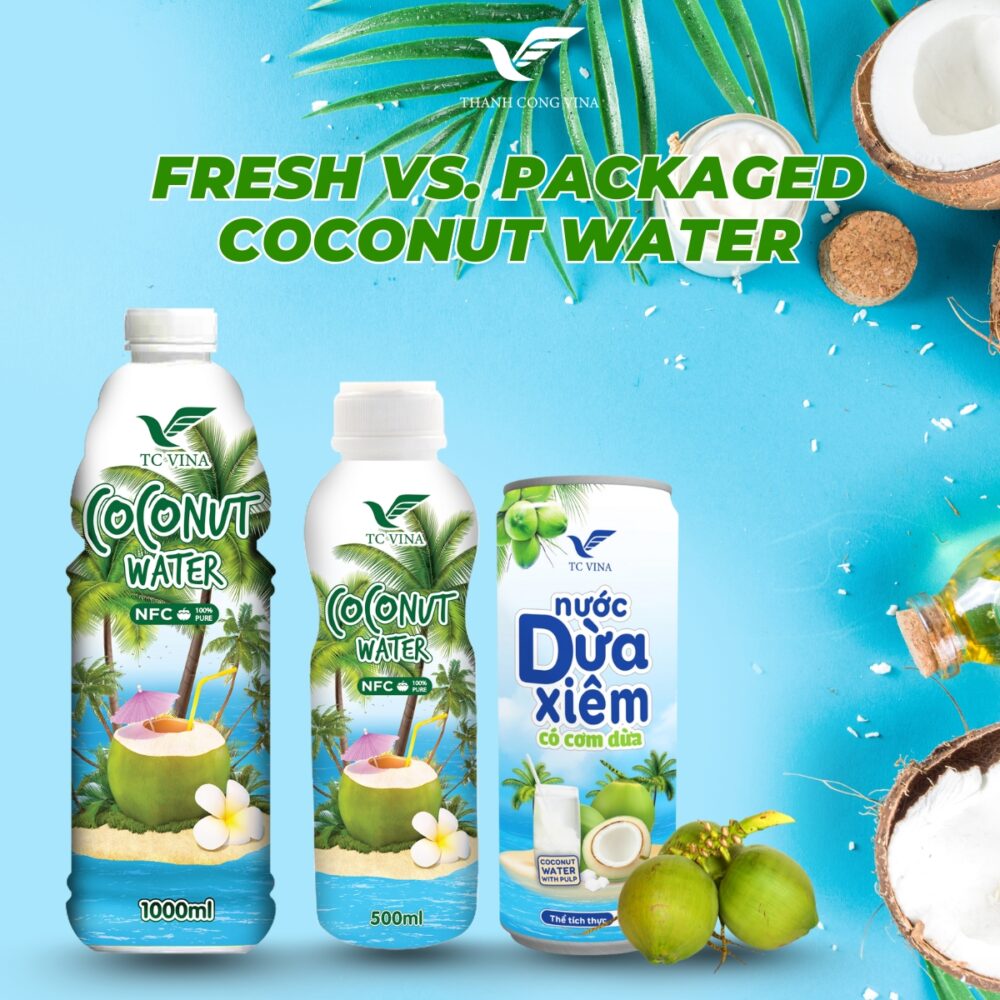
Fresh vs. Packaged Coconut Water
Fresh Coconut Water:
-
Free of preservatives and additives
-
Higher in natural nutrients
-
Refreshing and safe when consumed immediately after opening
Packaged Coconut Water:
-
Convenient but may contain added sugars
-
Pasteurization may reduce nutrient levels
-
Must check labels carefully for ingredients
Whenever possible, choose fresh coconut water directly from a young green coconut.
How to Choose the Best Coconut Water During Pregnancy
-
Prefer young green coconuts over mature brown ones.
-
Check for freshness—avoid coconuts with cracks or sour-smelling water.
-
If buying packaged, look for 100% natural, no added sugar, and no preservatives.
-
Consume immediately after opening for maximum nutrients.
Conclusion
So, is coconut water safe during pregnancy? The answer is yes—when consumed in moderation. Coconut water offers hydration, electrolytes, and essential nutrients that support both the mother and baby. It can help reduce morning sickness, fight fatigue, improve digestion, and maintain healthy blood pressure.
However, it should not replace plain water or a balanced diet. Fresh coconut water is always the best choice, and expecting mothers should consult their healthcare provider before making it a daily habit, especially if they have underlying health conditions.
At Thanh Cong Vina, we value the natural goodness of fruits and beverages. Coconut water is one of the purest, most refreshing drinks nature has to offer, making it a safe and beneficial option for pregnant women—when enjoyed responsibly.

